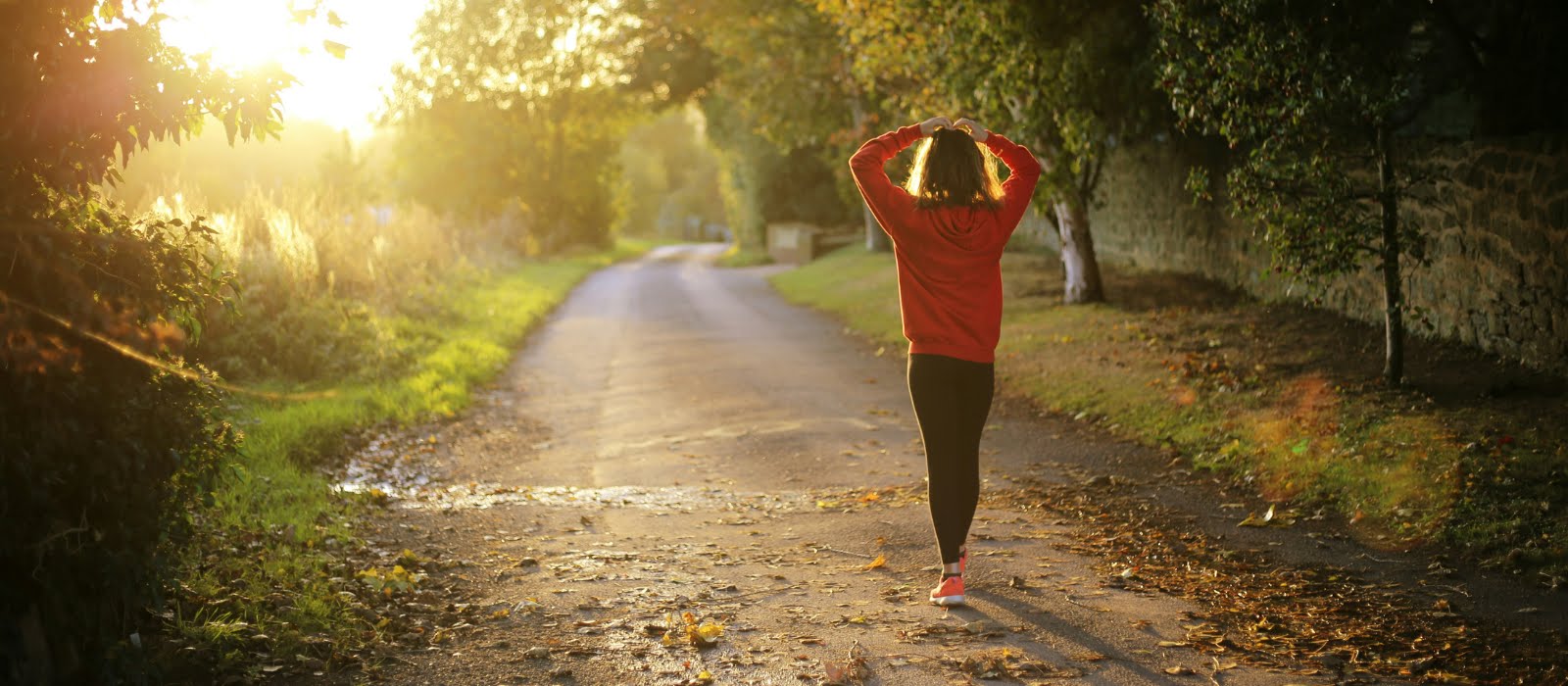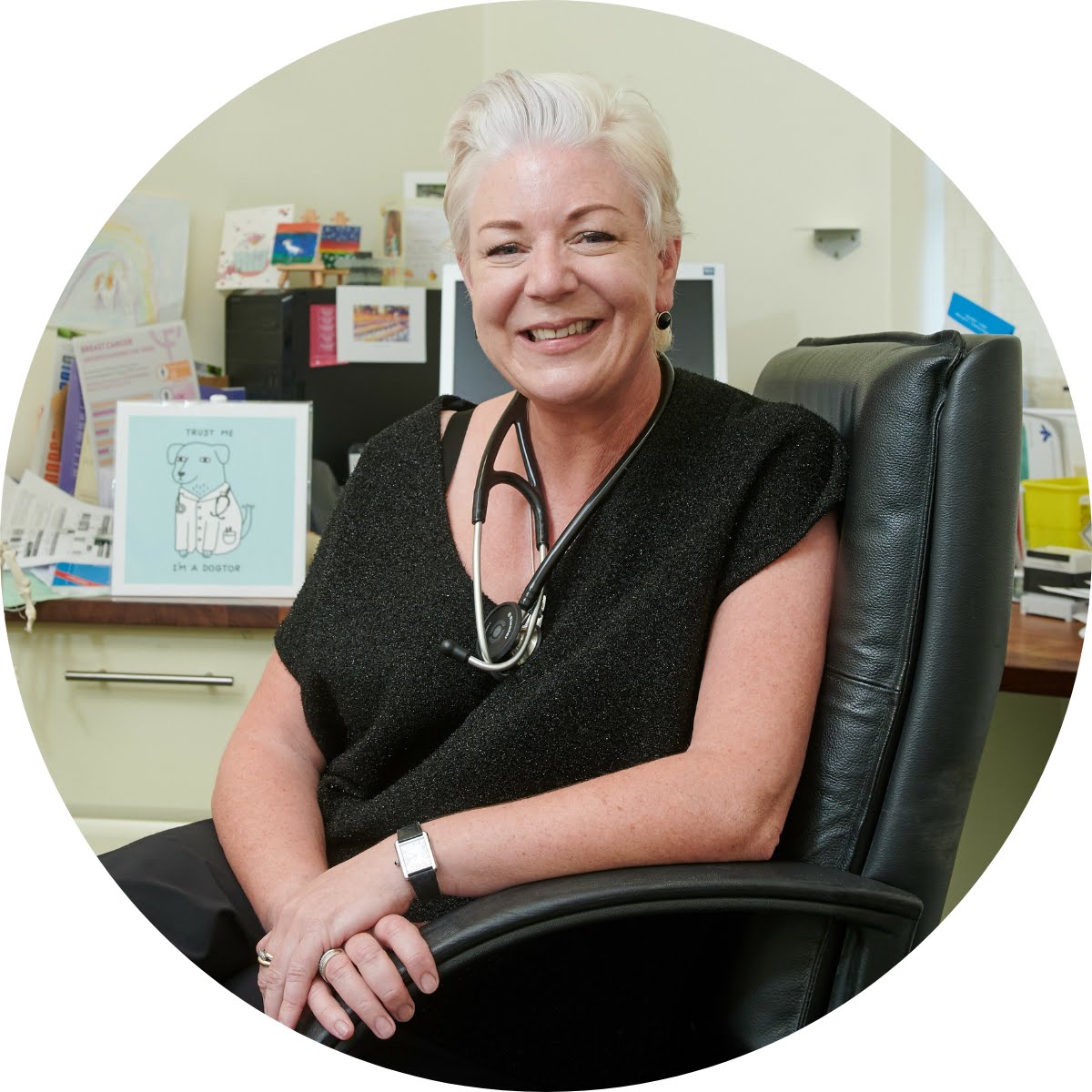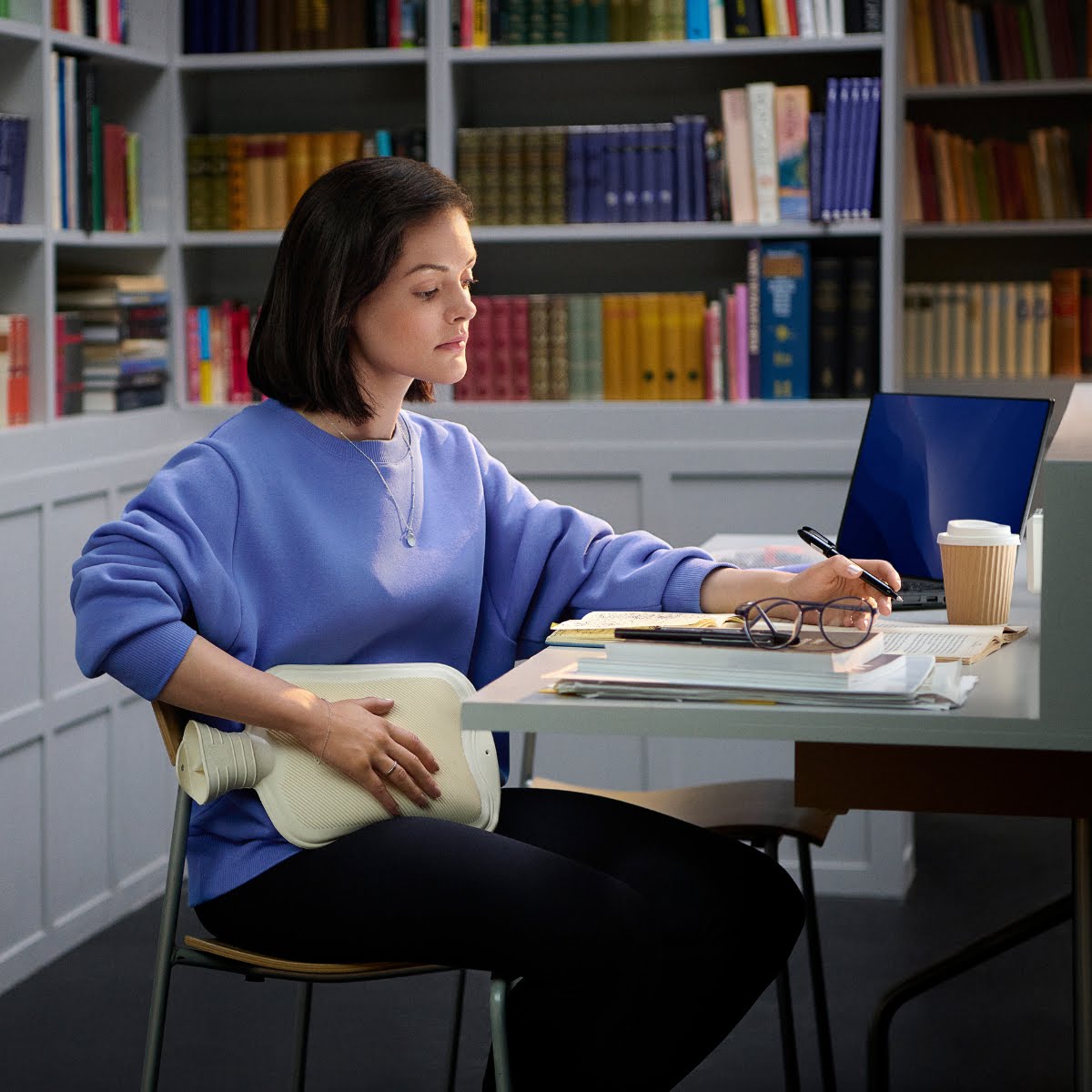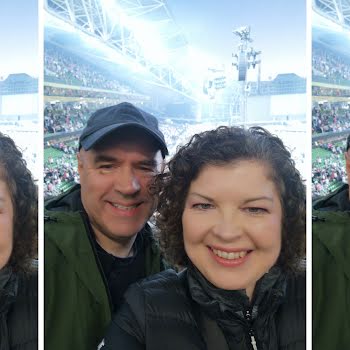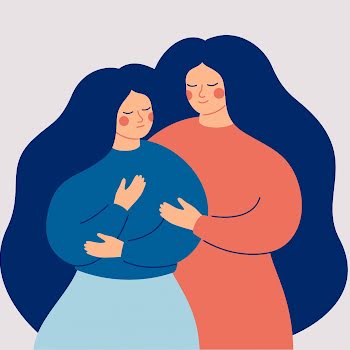
‘When it comes to women’s health, you have to be your own best advocate’


Dr Máire Finn, GP and female health specialist, discusses the long-standing taboo surrounding menstrual health, understanding period-related disorders and how a new online female health consultation service is bridging the gap.
It’s a sad truth that in 2025, female health concerns are still so often overlooked and dismissed, particularly in the area of menstrual health and its associated disorders. Many women who are experiencing terrible period pain and heavy bleeding don’t have a concrete understanding of what’s ‘normal’ or typical, and what could potentially be symptoms of endometriosis or polycystic ovarian syndrome.
Thankfully, Irish Life Health’s online female health consultation service is helping bridge that gap, giving patients direct access to a female health specialist GP. With their female health services, Irish Life Health give their members access to online or face-to-face medical experts, so their members can be seen, heard and treated without waiting.
We sat down with Dr Máire Finn, a GP specialising in female health, to discuss the topic in greater detail, including period-related disorders and how Irish Life Health’s new service can help.
Tell us about your background in and passion for female health.
I have been in practice in Ennis, Co Clare, since 1998. When I started, I joined two women who had a practice. I know that sounds a bit strange because it was less than 30 years ago, but it was really unusual to have three women in practice together at the time, and as a result, we had a majority of female clientele that would come to us. I suppose it was thanks to the enlightened women of Clare that I became passionate about female health.
It wasn’t necessarily something I had intended to go into. I was general practice trained, and I wanted to do everything, but women came to me, and as a result, I became more interested in female health and more of an expert in it. I learned as much from my patients over the years as I ever learned in medical school. I think there’s so much more that can be done. There are certain areas that have improved over the years, but we have a long, long way to go.
Do you think menstrual health is still a societal taboo in Ireland?
It’s a really big question, isn’t it? I’ve thought about it a lot, and I do talks all around the country about female health. According to Irish Life Health research*, nearly half of women (43%) feel it is still a societal taboo. What I think is that younger women are much more comfortable talking about their periods and period products to their friends and to their partners, and say, for instance, asking their partner to pick up tampons for them. However, that whole barrier to talking about problems associated with periods is still there, and we’ve made very little progress with that.
When I was a young woman, your greatest achievement was to hide the fact that you ever had a period from your peers or from anybody else, so that’s improved. But I think we still have a real reluctance to talk about the problems that are associated with periods outside of our intimate relationships and certainly not in a workplace or in an open conversation. It just doesn’t happen. The conversation isn’t open enough to be able to know what is typical and what isn’t, and that’s a huge barrier to normalising the conversations around menstrual health.
Do you believe women are still suffering in silence when it comes to their menstrual health?
I think society still dismisses them. I could count on one hand the number of times that a woman has asked me for a cert so that she wouldn’t have to work due to painful periods; it just doesn’t happen. They’re suffering in silence, absolutely, but the biggest question is, do they even know they’re suffering a lot of the time? They don’t know what’s typical, and that’s a flaw in our education system.
Who knows what pain in periods actually really means? We have these pain scores in A&E for somebody who comes in with a broken leg or a sore tummy, but we don’t use those for periods. Why is that? I worry about the medical bias that is built into all doctors, that we have this awful thing that maybe women overexaggerate their symptoms, when in fact I know from my experience that in reality, we under-explain or under-report them.
What are their barriers to seeking medical support?
The day-to-day management of contraceptive health, menstrual health and fertility and all of these issues are dealt with by GPs. If you feel you’ve been dismissed in some way, if you feel like you haven’t been listened to, find somebody else. In defence of general practitioners, we can’t be perfect at everything. You can’t be an expert on everything. So you can go and see somebody else. Be your own best advocate. If you feel something’s wrong, look for help again, if need be.
When should we seek help for concerns regarding menstrual health? How do we know what ‘normal’ is?
That’s a really hard thing to explain, because, first of all, what’s often said is what’s normal. Normal is an awful word because there’s no normal. What’s ‘typical’ is probably a better way to put it. Typically, women bleed for about seven days; their first day is heavy, and the first few days can be kind of crampy. When it’s beyond that, then you should be looking for help.
For instance, if you bleed and have to change your tampon or pad every hour for more than two or three hours, that’s very significant bleeding. If you bleed and you pass clots frequently, that’s very significant and needs to be looked at. If you bleed and always have to bring a change of clothes with you, that’s not normal. That’s not something you should have to put up with.
If pain is stopping you from functioning in a normal way, then it is not typical, and it should be looked at. That is not a judgment on you or your pain threshold; that is a reflection of how you are functioning. We have something like 450 periods in a lifetime. You need to get it right so that you can live and function normally. This is a biological process that half the population don’t have to even think about. So we might as well make it as easy as we possibly can for ourselves.
Premenstrual symptoms are very much like the prostagenic symptoms. Progesterone is the hormone that’s pro-pregnancy and pro-gestation, and it will present symptoms similar to early pregnancy symptoms like sore boobs, feeling bloated, nausea because you’re a little bit hypoglycemic. Your blood sugar levels drop, so that craving for chocolate you get before your period, it’s real. It’s your body telling you you need more sugar. What you need to do is eat small amounts of carbs more regularly in those few days before your period, and you can actually manage it a bit better.
What you have is a surge of progesterone and then a drop, and then you’ll bleed, and the fluctuations don’t suit us. We’re much better when they’re even; however, unfortunately, our cycle is based on fluctuations, so that drop can often cause migraine and other symptoms.
What are the typical menstrual health issues that are common among women?
Hormones affect every single cell in our bodies. That’s something that maybe is forgotten. There’s a funny concept called ‘bikini medicine’, which is the idea that women are men but just the bits under the bikini are different. But obviously, we’re so different in that every single part of our bodies is affected by our hormones – our gut, our brain, our boobs, our fingers, our toes, everything. So nutrition and exercise are hugely important in managing menstrual symptoms.
What are the symptoms of endometriosis and PCOS that women should be aware of, and what does the path to diagnosis look like?
If you have a very irregular cycle, it can be a sign of polycystic ovarian syndrome (PCOS), which is very common, and it’s not always a difficult thing. It will be associated with insulin resistance and other issues like acne. It’s quite a complex disorder, but if you know that you have it, then it can be managed. If you’re planning a family in future, that may be something that needs a little bit more input from the medical point of view.
You’ve got this slight imbalance in your hormones, and you tend to have an excess amount of male hormones. That isn’t always a negative, but it can, in some situations, cause acne, or what’s called hirsutism, where you have hair growth around your chin, or you’ve got more hair growth than you would expect. Sometimes it can cause excess weight as well and a very irregular cycle. You metabolize your sugars differently, and we don’t really know why, but you actually have what’s called insulin resistance. This means you might have a higher risk of developing diabetes in the future.
Likewise, if you have extremely painful periods, it could be a sign of endometriosis. It’s when you have tissue that acts exactly like the tissue in the lining of your womb, but it’s outside of your womb. There’s ongoing research as to why it happens, but you’ve got these little pockets of tissue in your pelvis, and even sometimes beyond your pelvis, that respond to the hormones that you have when you’re having your cycle. So when you start bleeding, they bleed too, essentially, so they cause pain in multiple areas. They are abnormal bits of tissue, so they can scar and stick things together. They can make your ovaries stuck to your gut, or your bladder stuck to your womb. The primary symptoms are pain and unusual pelvic symptoms, and it is, unfortunately, usually about a 10-year journey between when a woman realises there’s something wrong and when she’s diagnosed.
If you think you have these symptoms, you should see your GP because GPs are experts in managing menstrual health. Go to somebody who actually has an active interest in this area and be your own advocate.
How do you think Irish Life Health’s female health consultation service is helping bridge this gap in providing support and information on menstrual health?
You shouldn’t be a prisoner of your geography. If you’ve talked to somebody that you feel doesn’t understand or doesn’t have an interest, somebody who has a very specialist, intense interest in female health is who you need to talk to, and Irish Life Health’s female health consultation service is really good help for female health generally.
From the comfort of your own home, you’ll have access to consultations with somebody who can point you in the right direction and give you advice about whether you need further investigations or not, or even just to reassure you that, in fact, what you’re saying is within typical standards and to give advice about when to be worried and when not to be. That can mean an awful lot to women.
*Irish Life Health & RedC female health study June 2023
Find out more about Irish Life Health’s online female health consultation service by visiting irishlifehealth.ie. This benefit is available on all hospital plans. Terms and conditions apply. See your table of cover and membership handbook for details.











